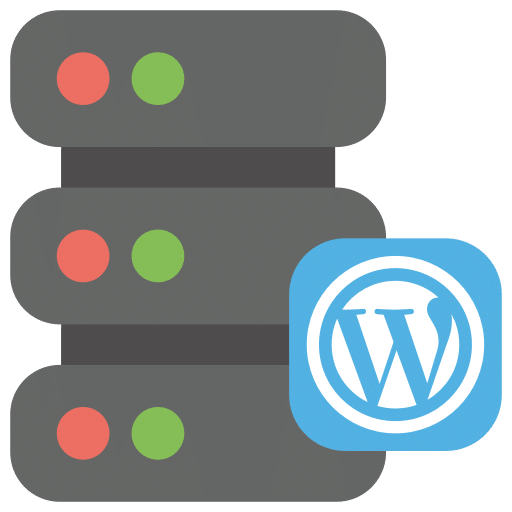
Guide to Decide on Shared or Managed WordPress Hosting
Should you do shared or managed WordPress hosting?
Every individual or business entity needs to host a website today at one point or another. Whether you’re a traditional retail store wanting to reach your online demographic, an online service with huge business potential, or simply an individual wanting to make a blog; you’ll find yourself making a decision: whether to opt for managed or shared WordPress hosting.
WordPress is quite literally the most extensively used content management system globally and odds are, you’ll be hosting yours on it as well. But the real question is; should you opt for a shared hosting company or a managed hosting company? Both these options have their pros and cons and it is impossible to declare one superior than the other.
Then how do you decide? The key to making this decision lies in understanding the difference between both these hosting options and more importantly, understanding your own needs to find the perfect fit. So let’s look at the basic characteristics of both these options:
Shared WordPress Hosting:
When multiple companies use a single server to host their sites, the service is called shared hosting. It is one of the most commonly used services wherein you’re sharing your server space with hundreds or maybe thousands of other sites.
The amount of server resources dedicated to you depends on the package you opt for. Let me give you a brief Web hosting review in order to explain the pros and cons of shared hosting.
- Affordability: One of the key factors whilst making any decision is cost. Companies can offer you the world but it all comes down to what can you afford? Well, if you’re looking to cut costs or lay low on the budgets, shared hosting can be an inexpensive option for you.
This is much cheaper than managed hosting and can give you a head start if you’re just starting out. If your website is low on traffic, this option won’t disappoint you. However, it is important to understand that once you start catering to heavier traffic, you’ll need to upgrade to a better package to keep up your user experience smooth and uninterrupted. - Customizable: Shared hosting companies offer you much more customization options as compared to managed hosting sites. Managed WordPress hosting sites only allow you to use WordPress. Wherein shared hosting services often allow you to use other plugins.
So if your site requires you to use plugins or other systems such as Joomla, Drupal or Magento, shared hosting is ideal for you. Managed hosting companies also tend to give lesser customization in the control panel as pre-set functions allow them to improve speed and efficiency. But if you’re starting out and wish to manage your site hands on, shared hosting would be recommendable. - Lower speed and Security: Here comes the downside. They say nothing in the world is free; certainly not web hosting services! As the basic concept of shared hosting requires you to share your server resources with hundreds and thousands of other sites, the speed and efficiency offered is often at stake.
For example, if one of the websites on a particular server uses more than its allocated share of server memory, all the other websites being hosted on the server will have to suffer the brunt of it. Remember, you’re sharing your bandwidth, processing power, memory and all such resources with other sites.
This also raises a major security threat. There is no way of knowing what websites are you sharing your space with, what is their build like, what plugins do they use, etc. Therefore the security of your data is always potentially at risk.
Managed WordPress Hosting
In managed hosting, your server is specifically designed and customized to host a WordPress website. While this eliminates your options of running other systems such as Joomla or Drupal, it also gives you the infrastructure that’s specifically built to handle high traffic and enables you to offer the best user experience. Let’s find out how.
- Higher Speed and Efficiency: When you opt for managed WordPress hosting, everything from your hardware to software is optimized to run your website. This can do wonders for your speed enhancing your website’s performance by multiple folds. Therefore, even if you start out with shared hosting, you’ll eventually have to upgrade to a managed hosting service as your website grows in terms of traffic and you need higher efficiency.
This can be further explained with a simple example. A managed WordPress hosting company can reduce your website’s page loading speed by 1-2 seconds per page! Can you imagine the difference this will cause to your user experience!
Managed hosting also offers other features that improve efficiency such as automated backups. So you’re never at the risk of losing your data!
- Dedicated Support Team and Updated Software: Even though shared hosting companies today offer an extremely friendly support team, their knowledge of WordPress can’t be vouched for. On the other hand, managed hosting companies have an expert team set in place dedicated to address queries or obstacles you could be facing, thus smoothing your overall experience.
Another important perk of managed hosting is its updated software. These companies always keep their software updated to the latest technologies thus giving you the best possible experience. Not just that, it often offers you automated updates that ensures that you’re always running the best possible version of every software required to run your website.
- Expensive: One major but obvious downside of managed hosting is its higher costs. Shared hosting sites are often cheaper than its managed hosting counterparts given that the services they offer are much more basic.
However, the slightly higher cost can be looked upon as an unavoidable expenditure if you have heavy traffic flowing in and wish to give your users a smooth and error-free experience. Compromising quality is always a strict no-no.
So having looked upon the pros and cons of both these options, what does it boil down to? You simply need to understand your requirements. Ask yourself these basic questions. Does my website need the additional features offered by managed hosting companies?
And if so, can I afford to pay the difference? The answer to these questions should enable you to make the right decision.




3 Comments
“One major but obvious downside of managed hosting is its higher costs.” I partially agree but then managed hosting does all the backend work for you. All you have to focus on are the UX and UI aspects of your site. Plus the great support you can get from their team when trouble happens, would outweigh the cost.
Thank you for your insight!
Hey Catherrine, thank you for this comparison. I’ll be thankful if you could share your two cents about Cloudways managed hosting? https://www.cloudways.com/en/wordpress-cloud-hosting.php